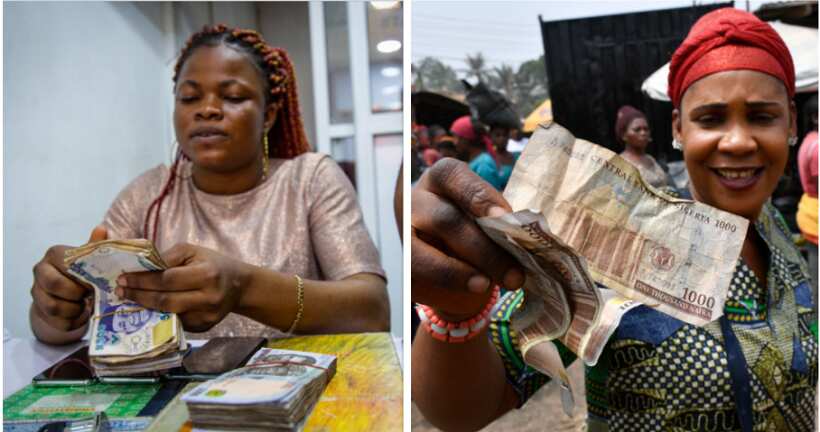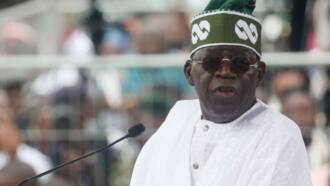Naira in Circulation to Reduce as CBN Considers Curbing Money Supply
- The CBN has been advised to consider a reduction in the growth of the money supply in the economy
- The recommendation was made by members of the apex bank's Monetary Policy Committee
- They stated that the control of cash in circulation would curb inflation and ensure price stability
PAY ATTENTION: Сheck out news that is picked exactly for YOU ➡️ click on “Recommended for you” and enjoy!
The members of the Central Bank of Nigeria (CBN)'s Monetary Policy Committee (MPC) have proposed a decrease in the growth of the money supply to strengthen monetary reserves and enhance the economy's ability to withstand potential future disruptions.
The recommendation follows a revelation by the CBN that the currency outside the banking system had increased to N1.4 trillion in March. This showed a 66% increase from the N843 billion in February.

Source: Getty Images
The rise in circulation is a direct result of the Supreme Court order reinstating the old N200, N500, and N1,000 banknotes until December 31, 2023, which has had a notable impact.
Additionally, the committee acknowledged that exercising control over the expansion of money supply would effectively curb the inflationary pressures that could arise from the recent surge in currency-in-circulation.
PAY ATTENTION: Сheck out news that is picked exactly for YOU ➡️ find the “Recommended for you” block on the home page and enjoy!
Restraining growth in money supply
Adamu Edward, a member and Deputy Governor of the Corporate Services Directorate at the CBN expressed in his comments within the CBN's Communique for the May MPC meeting that the growth in money supply has not been sufficiently restrained, particularly about the established benchmarks for the year.
Growth in the money supply is yet to be adequately curtailed, at least to the benchmarks for the year. Among other benefits, slowing the growth of money supply at this time should contribute to rebuilding monetary buffers to improve the economy’s resilience against future shocks.
Within this context, Adamu Edward stated that despite its potential impact on inflation, he considers the removal of subsidy on Premium Motor Spirit (PMS) to be appropriate, as it is expected to decrease the requirement for future monetary accommodation substantially.
In his remark, Momodu Omamegbe, a member and Head of Strategy at the Securities and Exchange Commission (SEC), highlighted the importance of prudently managing the money supply within the economy.
He said:
Meticulous management of the money supply is of paramount importance to forestall the recent increase in currency in circulation (CIC) from fuelling inflationary pressures.
Omamegbe emphasised the significance of the central bank's commitment to controlling inflation, considering the time delays in policy transmission and implementing effective currency management strategies.
By doing so, the bank can substantially contribute to achieving price stability, fostering sustainable economic growth, and safeguarding the nation's economic prosperity.
According to the Money and Credit Statistics report released by the CBN for May 2023, there was an 8.7% month-on-month increase in currency in circulation (CIC).
The CIC reached N2.5 trillion, rising from N2.3 trillion in May, continuing the upward trend that began in March 2023 when it was recorded at N1.6 trillion.
Naira ranks in list of world's worst-performing currencies against US dollar
In related news, Legit.ng reported that in a recent assessment of global currencies, Nigeria's currency, the Naira, has shown signs of progress.
The latest ranking by Steve H. Hanke, an esteemed professor of Applied Economics, indicates that the Naira currently occupies the 21st position among the worst-performing currencies worldwide as of June 2023.
This represents a noteworthy advancement from its previous standing of 15th by the conclusion of December 2022.
Source: Legit.ng



